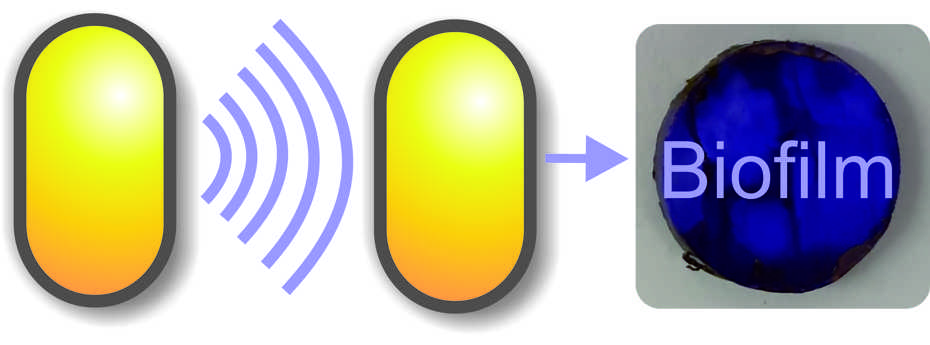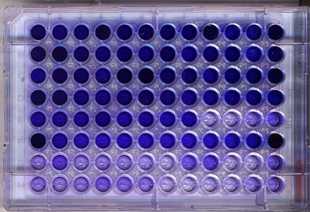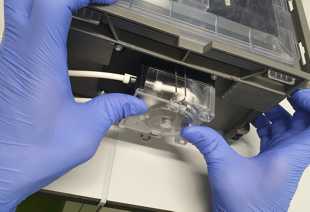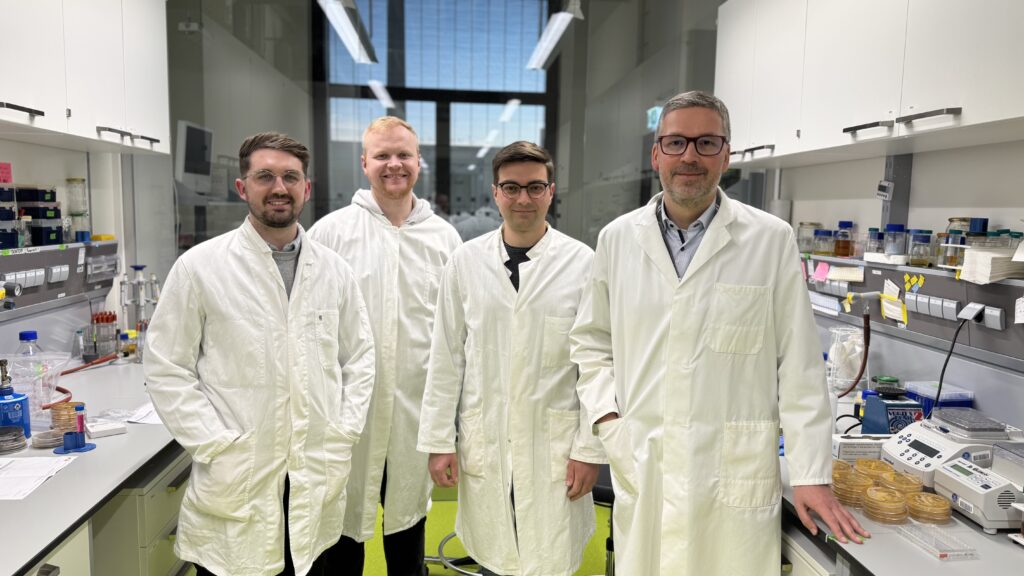
Bacterial biofilms cause huge problems in both healthcare and industry, thereby producing an enormous economic loss worldwide. The prerequisite for biofilm formation is bacterial chemical communication, generally known as quorum sensing (QS). Under high cell density, bacteria start to organize in a biofilm by producing extracellular polymers to attach and grow on solid surfaces making them highly resistant against chemical or mechanical treatment. Biofilms appear after a several time on nearly every wet surface, e.g. on freshwater supply, on marine surfaces like on ship bodies, in pipelines, or on medical relevant surfaces like implants.
Blocking bacterial QS is commonly referred to as quorum quenching (QQ). We at the IBWF are searching for QQ-compounds that block bacterial biofilm formation by interfering with QS of different various species that are present in different biofilm habitats (drinking water, marine, medical relevant surfaces). Since for activity of QQ-compounds there is no need to actively kill the cells, we focus on non-biocidal compounds for future applicability. Functionalized QQ-surfaces can be tested on covered biofilm in our own developed Panta Rhei microfluidics system allowing the macroscopic as well as microscopic evaluation and quantification of the bacterial biofilm.
The use of non-toxic QQ-compounds for biofilm prevention on different surfaces would be a great progress in medicine as well as a bioeconomic future.



CarioPlaQQ – Quorum quenching based anti caries dental care
Dental caries is the most widespread infectious disease worldwide, affecting nearly 80% of the global population and over 95% of Europeans. Caries is primarily caused by microbial biofilms (dental plaque) that contain bacteria such as Streptococcus mutans and lactobacilli. These bacteria convert dietary sugars into acids, lower the pH, and demineralize the tooth enamel, ultimately leading to caries. Once formed, biofilms are highly resistant to external influences, making prevention and treatment of caries difficult.
A promising strategy to combat caries is quorum quenching (QQ), a non-biocidal process that disrupts the communication required for biofilm formation between bacteria. QQ compounds inhibit biofilm development without killing bacteria, thereby reducing the risk of cross-resistance and cytotoxicity.

In our project CarioPlaQQ, funded by the Ministry of Science and Health under the program “Biotech Fellow International,” we aim to identify new active compounds against caries-causing bacteria. For this purpose, we are screening approximately 22,000 fungi from the IBWF strain collection for QQ compounds that act against microorganisms involved in caries formation (e.g., S. mutans, F. nucleatum, L. casei). Promising compounds will then be tested in vitro and ex vivo on oral biofilm models, as well as for biocompatibility in human cell lines (see figure). These experiments are carried out in close collaboration with our partner laboratory led by Dr. William Johnston at Glasgow Caledonian University (GCU). The goal is to integrate QQ compounds into oral care products such as toothpaste and mouthwash to effectively prevent caries.
This international collaboration between IBWF and GCU combines expertise in drug discovery and oral biofilm assays while promoting scientific exchange. The project also aligns with initiatives of the German Research Foundation (DFG) supporting international academic partnerships between Rhineland-Palatinate and Scotland, particularly in health and environmental research within the framework of the SULSA initiative.


